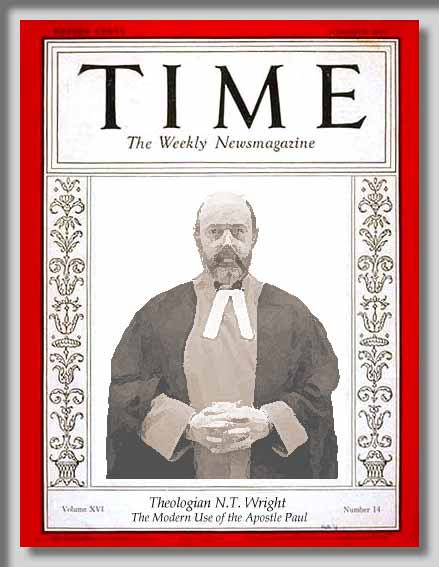 Update – This series was published in book form by the title: Indeed, has Paul Really Said?
Update – This series was published in book form by the title: Indeed, has Paul Really Said?
In the last post, we raised the question regarding Wright’s redaction of the word justification by revealing his contrived courtroom scene. This we did in keeping with our outline of study:
1. Wright’s View on The Doctrine of Justification & God’s Courtroom.
2. Wright’s view of the Apostle Paul.
3. Wright’s View of the Bible.
But now we must move to our second point of analysis which will deal with N.T. Wright’s view of the Apostle Paul. It is here that we will examine how Wright seeks to transform the beliefs of Paul so that the reader is forced to retool his lexical understanding of the Apostle’s every mention of terms like righteousness and justification. Wright’s argument is quite lengthy and convoluted, so  I will try to spare the reader all of his twisted sophistry. In short, Wright seeks to revise the language of Paul by making some gargantuan changes to Paul’s past:
I will try to spare the reader all of his twisted sophistry. In short, Wright seeks to revise the language of Paul by making some gargantuan changes to Paul’s past:
“Where does Saul of Tarsus belong on this map of first-century Pharisaic belief and activity? In one of the speeches in Acts (22:3) he claims that Gamaliel had been one of his teachers. This, coupled with other evidence from the epistles, has led some scholars to suppose that he was a Hillelite before his conversion. This simply cannot the be case – unless all the evidence of his persecuting activity is a later fabrication, which seems highly unlikely. The Gamaliel of Acts 5 would not have approved of the stoning of Stephen. He would never have dreamed of riding off to Damascus to haul Christians into prison and to death.” pp. 29-30
“Saul’s persecution of the church, and the word ‘zeal’ with which he describes it, puts him firmly on the map of a certain type of first-century Judaism…it reveals Saul of Tarsus not just as a Jew, but as a Pharisee; not just as a Pharisee, but as a Shammaite Pharisee; not just, perhaps, as a Shammaite Pharisee, but as one of the strictest of the sect.” p. 26.
It is by this paragraph, and others like it, that Wright concludes that Paul has been misunderstood in terms of his pharisaical upbringing. But is his evaluation of Paul’s history true, and if so, how would this effect the Apostle Paul in his life and writings? These questions are addressed in Indeed, Has Paul Really Said? – For more information on the publication and release of Indeed, Has Paul Really Said? go here.
